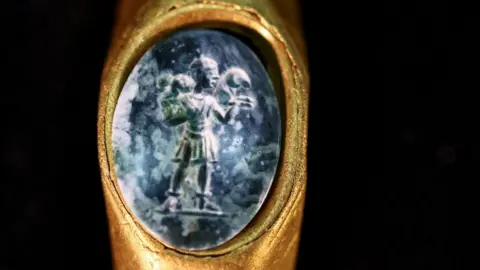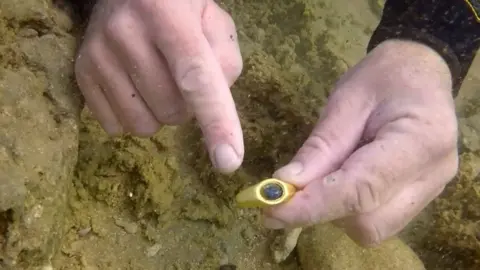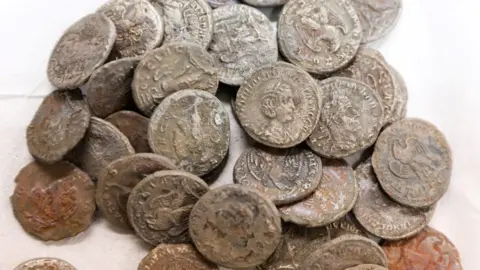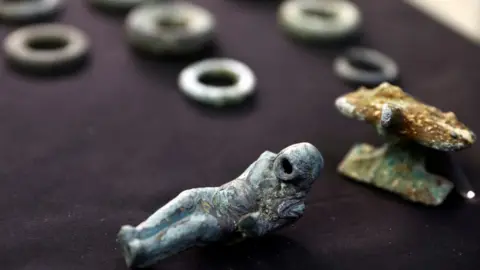Roman-era 'Good Shepherd' ring found off Israel in ancient shipwreck
 Reuters
ReutersA Roman-era gold ring bearing an image used by early Christians to symbolise Jesus has been found by archaeologists off Israel's Mediterranean coast.
The Israel Antiquities Authority said the ring was set with a green gemstone carved with the figure of a shepherd boy carrying a sheep on his shoulders.
In the Bible, Jesus describes himself as the "Good Shepherd".
The ring was among a number of artefacts discovered in two shipwrecks near the ancient port of Caesarea.
 Israel Antiquities Authority
Israel Antiquities AuthorityThe other treasures include hundreds of silver and bronze Roman coins from the mid-3rd Century and a large hoard of silver coins from the early 14th Century, during the Mamluk period.
Archaeologists also found Roman-era figurines in the form of an eagle and a theatre performer in a comic mask; bronze bells intended to ward off evil spirits; and a ring set with a red gemstone carved with a lyre.
The Israel Antiquities Authority said the remains of the ships' hulls and their cargoes were found scattered on the sea floor at a depth of about 4m (13ft).
 EPA
EPA Reuters
Reuters"The ships were probably anchored nearby and were wrecked by a storm," said Jacob Sharvit of the IAA's Marine Archaeology Unit.
Caesarea was home to one of the first Christian communities and, according to the New Testament, was where the apostle Peter baptised the Roman centurion Cornelius.
"This was the first instance of a non-Jew being accepted into the Christian community," Mr Sharvit said. "From here, the Christian religion began to be disseminated across the world."

